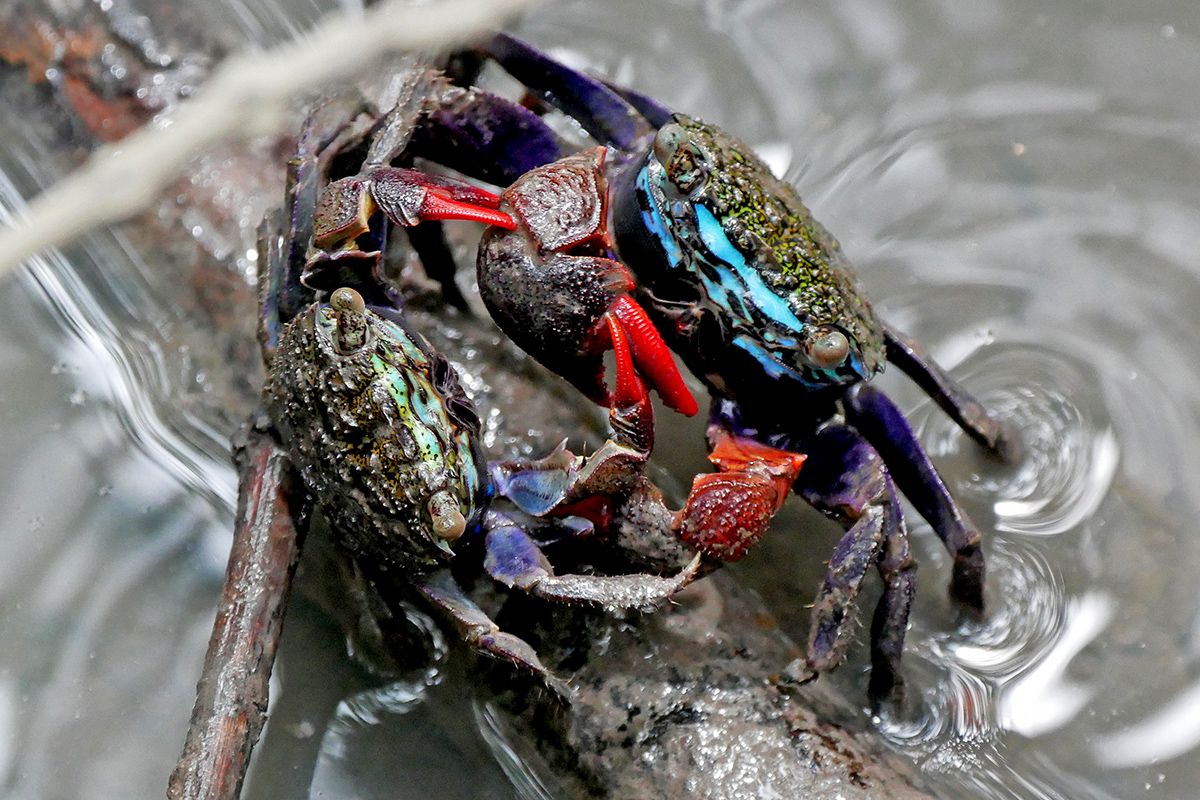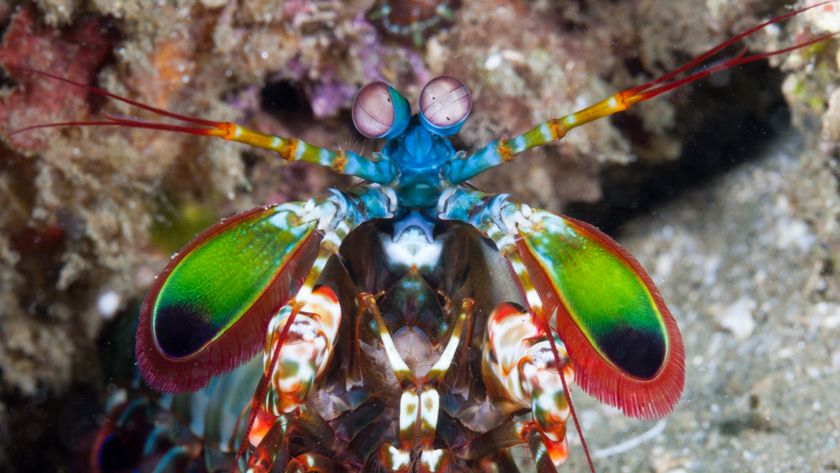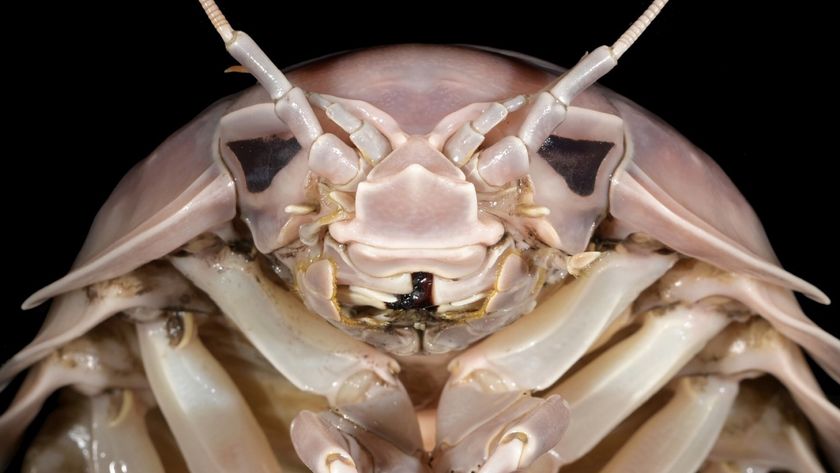In Your Face! Male Crabs Gloat with 'Victory Dance'

Some male animals are known for busting a move in elaborate mating dances to woo prospective mates. But some crab males perform a special dance for the males they've just defeated in combat, to discourage them from coming back for more, according to a new study.
Scientists had previously observed that after two male crabs tussled over a female, the victor would perform a type of "dance move" directed toward the defeated male, rather than toward the female. They suspected the motion was meant intimidate the crab that had lost the fight, but they did not know for sure.
Recently, researchers put that idea to the test with observations of Perisesarma eumolpe, a colorful type of mangrove crab native to southeast Asia. They analyzed how rivals responded to dances, and noted that when a victorious crab performed a taunting strut, the loser was more likely to slink away in defeat. [Strange Love: 10 Animals with Truly Weird Courtship Rituals]
Anyone who watches sporting events — especially American football — is probably familiar with some of the elaborate "victory dance" displays that take place in the end zone after a player scores a touchdown. These celebrations can involve vigorous and energetic wagging of extremities or a series of exaggerated poses, and often include vocal accompaniment.
In mangrove crabs, the "dance" is somewhat less inventive. The male turns one of its oversize front claws to point downward, and then rubs the other front claw up and down quickly, creating a signal that is visual and perhaps acoustic as well, according to the study.
Two crabs enter; one crab leaves
To evaluate the behavior of fighting crabs, the researchers set up a combat arena and paired male crabs randomly. They staged and videotaped 27 contest trials from which they analyzed 77 battles, scoring the aggression of the crabs on a scale of 0 to 3.
About 55 percent of the initial skirmishes ended with the winner performing a taunting victory dance. Crabs that lost their matches were less likely to dive back into the fray if the winner ended the battle with a victory dance; only 35 percent of the losers were willing to try again after the winner "browbeat" them with fancy footwork, the scientists discovered.
Sign up for the Live Science daily newsletter now
Get the world’s most fascinating discoveries delivered straight to your inbox.
Dancing also seemed to invigorate the winners and encourage them to follow up with even more aggression, the study authors found. In the crabs that flaunted their victories with dances, 65 percent took another shot at the losers afterward.
Performing a victory dance involves some energy cost to the crab, but it's a gamble that's likely to pay off in his favor, the scientists noted. If a crab has already won the contest, expending a little extra energy afterward could ensure that his rival gives up instead of opposing him again, according to the researchers. It could also serve as a warning to other males waiting nearby that might be tempted to challenge the victor, the researchers added.
Their findings are among only a handful of studies that have investigated victory dances and the role they play in animal mating behavior. However, anecdotal accounts describe various forms of triumphant strutting performed by crustaceans, amphibians, birds and certain types of insects, suggesting that these displays could be more widespread among animals than previously suspected, the study authors reported.
The findings were published online Oct. 12 in the journal Ethology.
Original article on Live Science.

Mindy Weisberger is an editor at Scholastic and a former Live Science channel editor and senior writer. She has reported on general science, covering climate change, paleontology, biology and space. Mindy studied film at Columbia University; prior to Live Science she produced, wrote and directed media for the American Museum of Natural History in New York City. Her videos about dinosaurs, astrophysics, biodiversity and evolution appear in museums and science centers worldwide, earning awards such as the CINE Golden Eagle and the Communicator Award of Excellence. Her writing has also appeared in Scientific American, The Washington Post and How It Works Magazine. Her book "Rise of the Zombie Bugs: The Surprising Science of Parasitic Mind Control" will be published in spring 2025 by Johns Hopkins University Press.











